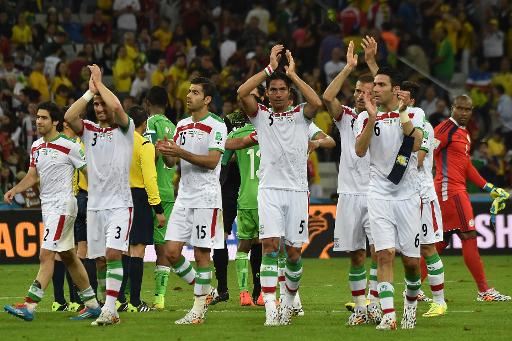June 20-2014

Coach Carlos Queiroz has taken a number of hits from fans for relying heavily on Iranian expats. He has four of them on Team Melli, including one who doesn’t speak Farsi since his mother is Polish and he was born and reared in Germany.
But Iran isn’t the only team relying heavily on expatriates in the World Cup. Take the USA. It has seven on its 23-man squad.
Six of them have one American parent. But all six grew up abroad. The seventh is just an accidental American—born of Icelandic parents who were studying in the United States when they became parents.
The US Soccer Federation has no problem with expats, though a scattering of gripes have been heard from fans. There are also, of course, immigrants. The president of the federation, Sunil Gulati, was born in India and moved to Connecticut with his parents at the age of five.
The team coach is an American, Jurgen Klinsmann, who was born in Germany and played on the German national team. After his playing career was over, he moved to California and became an American citizen.
Gulati recently heard a loud complaint about the expats from a fan during a game. USA Today reported the fan was wearing a Landon Donovan jersey and made clear he as unhappy that Donovan was cut from the team to be replaced by an expat.
“He’s a legend,” the fan shouted. “How do you sleep at night, Sunil? They don’t even speak English!” he screamed of the expats. That is not true, though they do have accents.
There are five German Americans on the team — Jermaine Jones, Fabian Johnson, Timmy Chandler, John Brooks and Julian Green. Four are the sons of US servicemen. All were raised in Germany, and English is their second and accented language.
Then there’s Mix Diskerud, who has an American mom but grew up in Norway, and Aron Johannsson, born while his parents were studying in the USA and reared in Iceland.
Countries relying on players who grew up elsewhere are not a new—or American, or Iranian—phenomenon. “It’s a process other nations went through 10 to 20 years ago,” Klinsmann said, citing France, the 1998 World Cup champion, as well as Germany in the previous two World Cups.
“Now it’s happening more and more with the United States. It gives us a new dimension.”
Look through the rosters of the 32 World Cup teams in Brazil, and dual nationals abound. Mexico has two players born in the USA on its squad. Spain, the defending World Cup champ, features Diego Costa, who made the controversial decision to play for La Roja over his native Brazil.
Though three of the seven dual national players on the US team were courted before Klinsmann took over, there has been some mumbling about the Germanification of the American team throughout his tenure.
But the issue isn’t ultra-nationalism. It’s a concern about building up the sport in the United States where soccer essentially ranks fifth, behind football, baseball, basketball and ice hockey
Bruce Arena, who coached the 2002 and 2006 World Cup teams, doesn’t think relying on dual nationals is good for the growth of the game in the USA.
“I’m a big believer in the American player and producing them out of our system. I think that ultimately is what will develop the sport in our country, not on the field but with the consumer,” Arena said.
Beyond the seven expats, there are four first-generation Americans on the US team, with parents from Mexico (Omar Gonzalez), Colombia (Alejandro Bedoya), Haiti (Jozy Altidore) and Hungary (Tim Howard).
By the way, Chris Wondo-lowski is half Native American and a member of the Kiowa Tribe.
FIFA rule changes have increased the number of dual-passport players allowed across the globe. In 2009, FIFA eliminated the age limit of 21 for players requesting a one-time switch of federations after having participated in official competitive youth matches for one country. Now, once a player appears in a senior game in a FIFA or confederation tournament, he cannot change his allegiance.